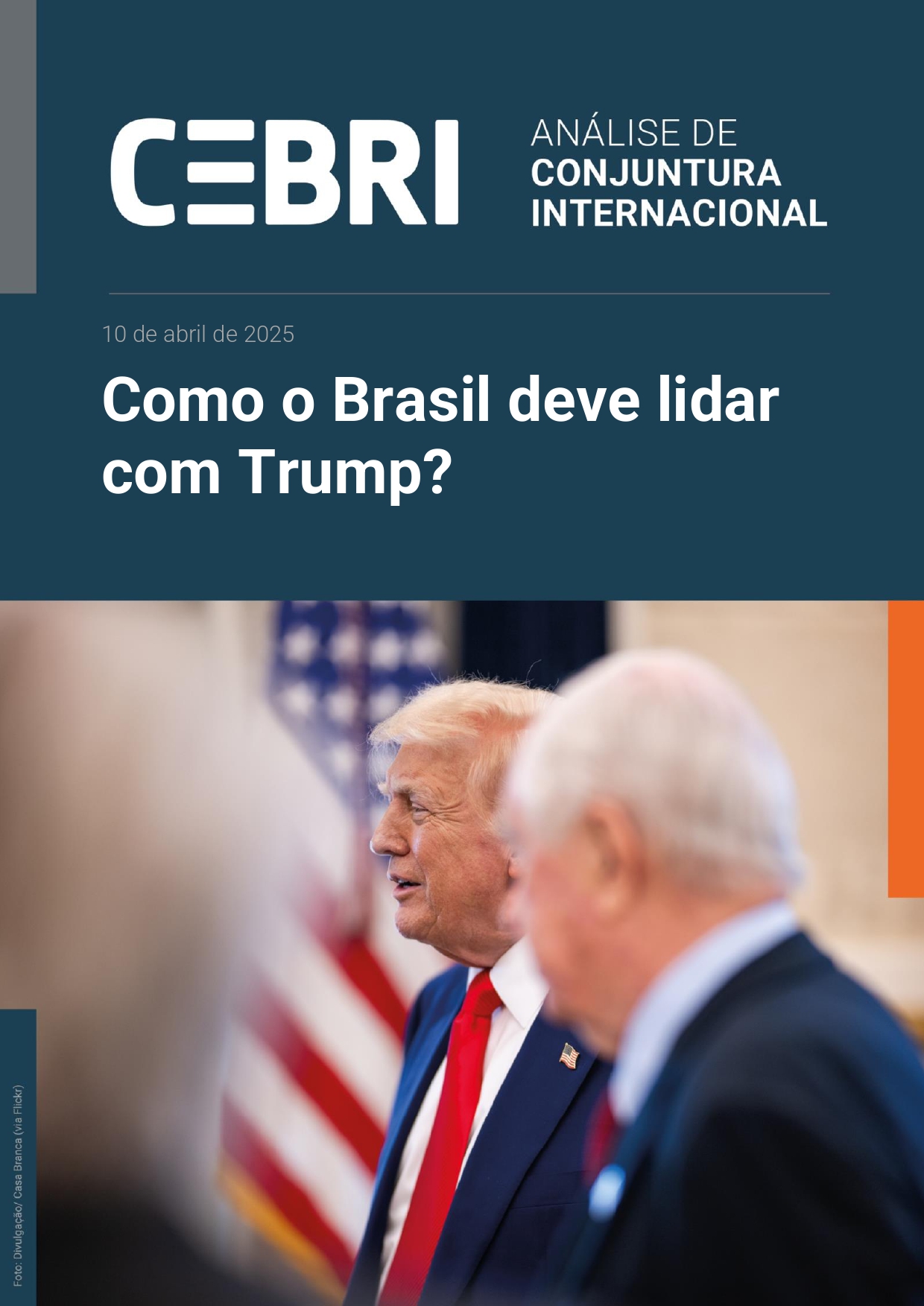Articles
How should Brazil deal with Trump?
- 10 april 2025
The Brazilian Center for International Relations (CEBRI) presents its latest International Analysis, titled "How Should Brazil Deal with Trump?", which examines the impacts of the new trade measures adopted by the United States and proposes strategic guidelines for Brazilian foreign policy.
The publication, available in Portuguese, addresses the structural transformation in the rules of international trade, intensified by the new tariff measures imposed by Washington. Although Brazil is not one of the countries directly most affected, the indirect effects of Chinese retaliations and the redirection of global trade flows pose concrete challenges to the formulation of a national response.
Among the central points of the analysis, four guidelines for a more strategic trade policy are highlighted:
- Intelligent use of trade retaliations;
- Diversification of international alliances;
- Strengthening relations with Asian countries;
- Intellectual property as a bargaining tool.
The text invites reflection on the role that Brazil can play at this moment of reconfiguration of the international economic order, with assertiveness, pragmatism, and a long-term vision.
The Brazilian Center for International Relations (CEBRI) presents its latest International Analysis, titled "How Should Brazil Deal with Trump?", which examines the impacts of the new trade measures adopted by the United States and proposes strategic guidelines for Brazilian foreign policy.
The publication, available in Portuguese, addresses the structural transformation in the rules of international trade, intensified by the new tariff measures imposed by Washington. Although Brazil is not one of the countries directly most affected, the indirect effects of Chinese retaliations and the redirection of global trade flows pose concrete challenges to the formulation of a national response.
Among the central points of the analysis, four guidelines for a more strategic trade policy are highlighted:
- Intelligent use of trade retaliations;
- Diversification of international alliances;
- Strengthening relations with Asian countries;
- Intellectual property as a bargaining tool.
The text invites reflection on the role that Brazil can play at this moment of reconfiguration of the international economic order, with assertiveness, pragmatism, and a long-term vision.

